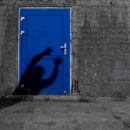Palm Beach (South Florida) OCD Support Groups: Adults, Kids, Teens
OCD Support Groups – Palm Beach Gardens|Jupiter|West Palm Beach|Florida Attention all South Florida residents with OCD in Palm Beach Gardens, Jupiter, Juno, West Palm Beach, Boca Raton, Boynton Beach, Lake Worth, Royal Palm Beach, Wellington, Delray Beach, Pompano Beach, Fort Pierce, Port St. Lucie, Greenacres, Miami, and Fort Lauderdale. I am pleased to announce that the Center for Psychological & Behavioral Science is now sponsoring free monthly support groups for Palm Beach County kids, teens, and adults with OCD! The monthly OCD support group schedule is as follows: OCD Support Group for Kids & Teens (17 & younger) – Led by Dr. Seay Meets Monthly (specific times/dates vary based on attendee availability) Location – Our Office (address below). If you would like to help choose our next meeting date or get announcements about upcoming meeting times, you can access...
Read MoreTreatment for Body-Focused Obsessions & Compulsions in OCD (e.g., Swallowing, Breathing, Blinking)
This post is the last in a series of posts discussing body-focused obsessions and compulsions (aka, sensorimotor, somatosensory, or somatic obsessions and compulsions) in obsessive-compulsive disorder (OCD). This series was inspired by an original article written by Dr. David Keuler for Beyond OCD. You can access Dr. Keuler’s excellent article here. Ruling out Medical Causes for Body-Focused Obsessions & Compulsions in OCD (sometimes called Sensorimotor or Somatic Obsessions) Before we begin discussing cognitive behavioral treatment for body-focused obsessions and compulsions, it is important to note that there are many non-psychological causes of physiological symptoms. Consequently, it is essential to be evaluated thoroughly by a medical doctor in order to rule out any possible physiological causes for your symptoms. If a medical disease is responsible for your issues with swallowing, breathing, blinking, or moving, the techniques I will be discussing...
Read MoreOCD Treatment (ERP & CBT): Exposure & Cognitive Restructuring
Question: To what extent would a change of mindset (e.g., changing my expectations for myself) be helpful in recovering from OCD? What is likely to happen if I delay formal treatment with a psychologist and work instead on changing my own mindset? OCD Treatment Components: Cognitive Restructuring + Exposures Regardless of whether or not it occurs in the context of formal psychotherapy, changing your mindset will be a critical component of your recovery. If you do any reading on cognitive behavioral therapy (CBT), you’ll see this referred to as “cognitive restructuring.” Devoting time to challenging and modifying your underlying belief system is essential for fighting OCD, but research on OCD indicates that this process alone will probably be insufficient if it’s not integrated with appropriate exposure-based behavioral strategies (e.g., exposure and response prevention [ERP]). OCD Treatment Delays In general,...
Read MoreOCD Treatment: OCD vs. Me. How do I Tell the Difference?
Question: Because many of my OCD rituals are related to my professional identity, I’m worried that changing my rituals will somehow change those parts of me that I like (e.g., my personal goals and ambitions). Should I be concerned about this? Early Onset OCD in Kids & Teens (Pediatric OCD) Many people worry that by fighting their OCD, they will lose essential parts of themselves. This is particularly true for adults with obsessive compulsive disorder, who have had to deal with OCD for most of their lives. Because OCD often begins early in childhood and can have a chronic course, it can be difficult to separate yourself from your OCD symptoms. In many pediatric OCD cases, kids with OCD exhibit symptoms by age 10. Shockingly, in certain cases, even toddlers can show clinical signs of obsessive-compulsive disorder. There are...
Read MoreFear, Doubt, Uncertainty, ERP, & the Monster Under the Bed
Everyone I know has, at some point, had to deal with the monster under the bed. Some do it with grace. Others falter. I’ve always been clumsy. I can vividly recall many terrified nights from my childhood, when I would lie rigidly in my bed, utterly paralyzed by fear. Afraid to make the slightest movement, to breathe, to call out for my parents…lest I be detected by IT. The pounding of my heart would be so loud in my ears, and my breathing so ragged, that I could swear the entire house could hear me. And yet…no one came to help. The moment would stretch out like taffy. At some point, my raw fear would ever so subtly decline, freeing me up to end the stalemate in one of several ways. Some nights, I would call out for help....
Read MoreMindfulness & ACT-based therapy: Questioning “I hurt; therefore, I suffer.”
Mindfulness & ACT-based Approaches to Therapy Mindfulness & Acceptance and Commitment Therapy (ACT)-based approaches to treatment might (Hayes, Strosahl, & Wilson, 2003) ask you to consider the truth of the following statement: I hurt; therefore, I suffer. Most of us would probably agree that suffering is usually borne out of hurt. But this doesn’t mean that pain, discomfort, or unwanted emotions necessarily lead to suffering. In truth, many hurts do not lead to suffering. Pain and suffering are distinct entities that exist on two entirely different planes. Pain is based on an experience, whereas suffering is based on how we perceive that experience. In many cases, we may not be able to sidestep pain or hurt; however, suffering may be a different matter. Pain Think about the last time you felt physical pain. Maybe you’re feeling it right now....
Read More








